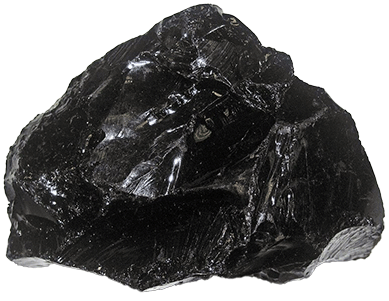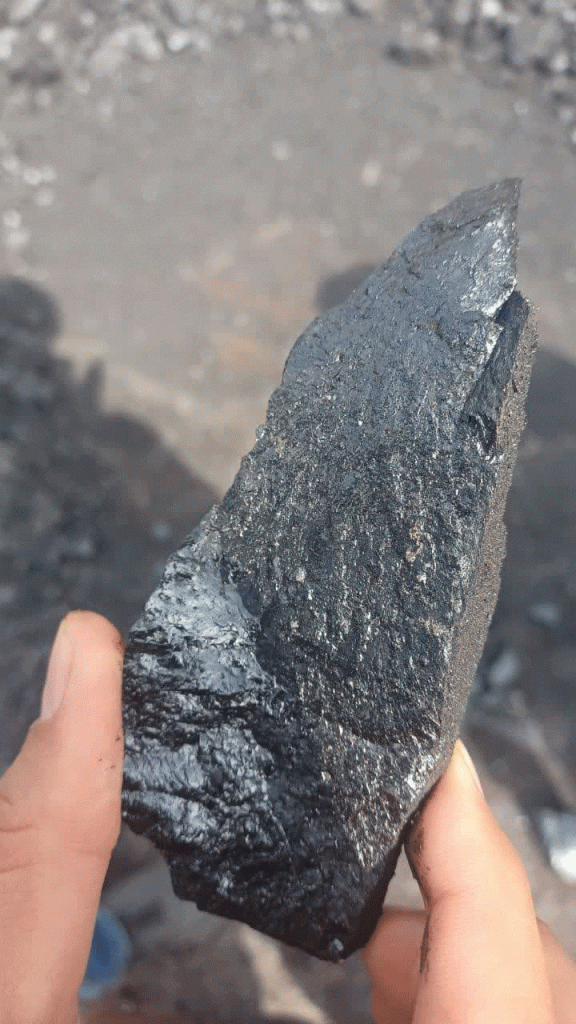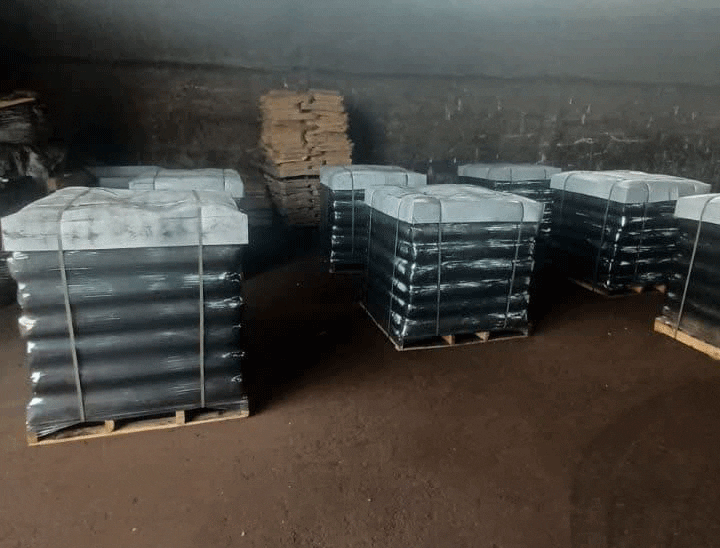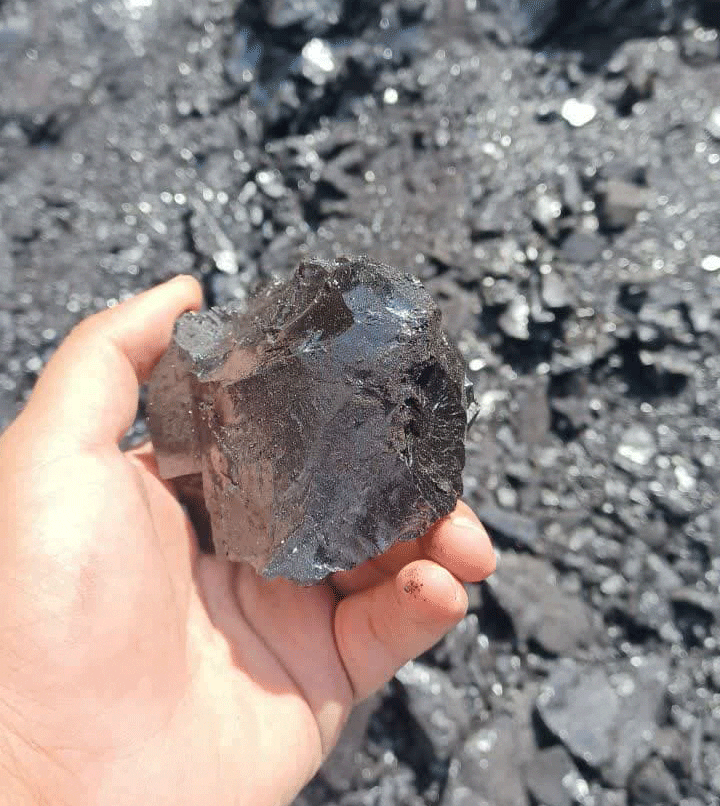What is bentonite uses?
Bentonite and bentonite uses , a type of absorbent and clay-rich rock, has found its way into numerous industries due to its versatile properties. This natural


Gilsonite, a unique and versatile natural resource, has been gaining popularity across various industries due to its exceptional properties and wide range of applications. In this article, we will explore the world of Gilsonite and shed light on its uses, benefits, and why it has become a sought-after material in today’s market
Gilsonite is a naturally occurring solid hydrocarbon resin with a unique molecular structure composed of long chains of carbon atoms. It has a high carbon content, making it energetically rich and suitable for combustion. Gilsonite is insoluble in water and most organic solvents, which contributes to its resistance to degradation. Its physical properties, such as melting point and hardness, can vary depending on the specific composition. These unique structural properties make Gilsonite valuable in various industries, including asphalt and road construction, paints and coatings, adhesives, and foundry applications. Overall, Gilsonite is a versatile natural resource with diverse applications thanks to its distinct molecular structure.
Derived from ancient deposits of organic matter, Gilsonite is a naturally occurring mineral asphalt. This means that it is a sustainable resource, as it is formed over millions of years through the natural processes of heat and pressure. By utilizing Gilsonite, businesses can reduce their reliance on synthetic materials and contribute to a more sustainable future.
One of the primary reasons for the growing popularity of Gilsonite is its exceptional binding and adhesive properties. It can be used as a binder in various applications, including road construction, pavement maintenance, and asphalt modification. Gilsonite enhances the durability and strength of asphalt mixtures, making them resistant to cracking, rutting, and aging. Its adhesive properties also make it an ideal ingredient in adhesives, sealants, and coatings.
This type of product finds extensive use in a wide range of industrial applications. In the construction industry, it is utilized as a key component in roofing materials, waterproofing membranes, and pipe coatings. In the drilling industry, Gilsonite-based drilling fluids are employed for their excellent lubricating properties and ability to control fluid loss. Additionally, Gilsonite is used in the manufacturing of ink, paint, inkjet toners, and various other industrial products.
Gilsonite proves to be a cost-effective solution for many industries. Its unique properties allow for the reduction of material consumption, as smaller amounts are required to achieve desired results. Additionally, the durability and longevity it provides to various applications translate into long-term cost savings by minimizing the need for frequent repairs and replacements.


In general, this material is used in many other industries, including the following:
Extracting Gilsonite involves several steps. Here is a general overview of the extraction process:
1. Site selection: Identify an area where Gilsonite deposits are known to exist. These deposits are typically found in sedimentary rocks in certain regions around the world, such as Iran.
2. Exploration and drilling: Conduct geological surveys and exploration activities to locate potential Gilsonite deposits. Once a suitable site is identified, drill core samples to assess the quality and quantity of the Gilsonite reserves.
3. Mining: If the core samples indicate viable Gilsonite deposits, mining operations can commence. This involves removing overburden (rock or soil covering the deposit) to access the Gilsonite-bearing rock layers.
4. Extraction: The extraction process can vary depending on the specific mining techniques employed. In some cases, underground mining methods such as tunneling or room and pillar mining may be used. In other cases, open-pit mining may be more feasible.
5. Crushing and grinding: After the Gilsonite-bearing rock is extracted, it is crushed and ground into smaller particles to facilitate further processing.
6. Separation: Various separation techniques, such as flotation or gravity separation, may be employed to separate the Gilsonite from other minerals or impurities present in the rock.
7. Drying: The separated Gilsonite is then dried to reduce its moisture content. This can be done using methods such as hot air drying or rotary kilns.
8. Packaging and distribution: The dried Gilsonite is packaged into bags or bulk containers for transportation and distribution to customers in various industries.
It is important to note that the specific extraction process may vary depending on the location and geological characteristics of the Gilsonite deposit. It is recommended to consult with experts or mining professionals familiar with the specific deposit you are working with for detailed guidance on extraction methods.
Gilsonite, also known as uintaite, is a natural asphalt resin. It is processed to extract its valuable properties for various applications. The processing of Gilsonite involves crushing and grinding the raw material to a fine powder, which can then be used in different industries. The powder is typically heated to remove impurities and moisture, resulting in a high-quality product. This processed Gilsonite can be used as a binder in asphalt and road construction, providing improved durability and resistance to weathering. It is also utilized in the paints and coatings industry as a pigment and rheology modifier. In addition, Gilsonite is used in adhesives, sealants, foundry applications, drilling mud additives for the oil and gas industry, ink production, and as a binder in carbon electrodes for aluminum production. Overall, the processing of Gilsonite unlocks its versatile applications across multiple industries.

All in All, the minerals because of their complexity mainly have various impurities such as Metal impurities, Non-metallic impurities, Gangue and Volatile substances.
some of the metallic impurities are Lead, Zinc, Iron, Copper, Arsenic, Silver and etc. On the other hand, non-metallic impurities mainly contain substances such as Sulfur and Phosphorus. The available gangues are Silica, Alumina, Magnesium, Barium, and Lime, and the volatiles is water, Zinc, Manganese dioxide, and other organic materials.
KAS Co. with over 20 years of experience, based on its technical knowledge and expert employees has been able to produce gilsonite with a very high degree of purity and quality so that it can supply various industries. it is our top priority that we meet all the necessary standards for producing high-quality productions in order to satisfy customer’s needs please do not hesitate to contact us in case of any questions or inquiries.
In general, this material is used in many other industries, including the following:
Bentonite and bentonite uses , a type of absorbent and clay-rich rock, has found its way into numerous industries due to its versatile properties. This natural

Introduction But Application of manganese in industry Manganese, a versatile transition metal, plays a crucial role in various industries due to its unique properties. This essay

What is Gilsonite Sealer? Gilsonite sealer, derived from the unique natural resource known as Gilsonite, has become a significant player in the realm of sealcoating for

And what differentiates manganese oxide & rock and Other products of Kane Ara from other competitors. What is the price of manganese here? Why should choose
With more than 20 years of experience, relying on its technical knowledge and expert staff, Kane Are Sepahan Company has been able to produce manganese with very high purity and quality to supply various industries. Compliance with all the necessary standards to produce high-quality products in order to meet the needs of our customers is our main priority, please contact us if you have any questions or requests.
Multilingual WordPress with WPML